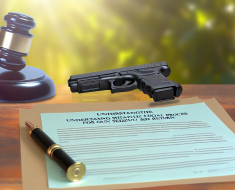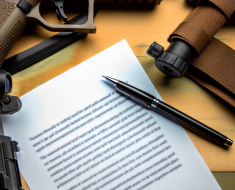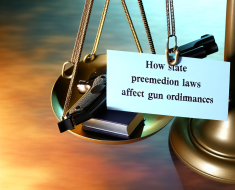What You Need to Know About Gun Registration Drives

Gun registration drives are a pivotal element in the ongoing debate over firearm control and public safety. These initiatives, often spearheaded by government agencies or advocacy groups, aim to document firearms owned by civilians in a systematic manner. While supporters argue that gun registration enhances accountability and reduces gun violence, opponents frequently raise concerns about privacy and potential government overreach. This article provides a comprehensive overview of gun registration drives, exploring their purpose, implementation methods, benefits, challenges, and real-world examples.
The Purpose of Gun Registration Drives
Gun registration drives are designed to create a formal record of firearms owned by private individuals within a jurisdiction. This process typically involves owners submitting detailed information about their guns, including make, model, serial number, and sometimes personal identification data.
Understanding the objectives behind these drives helps clarify why they remain a contentious yet crucial tool in firearm policy:
- Enhancing Public Safety: By knowing who owns which guns, law enforcement agencies can more effectively trace firearms used in crimes.
- Reducing Illegal Firearms: Registration helps differentiate legally owned firearms from those obtained illicitly.
- Facilitating Accountability: Gun owners are held responsible for their weapons, which can reduce negligent use or theft.
- Supporting Background Checks: Registration databases assist background screening processes when firearms change hands.
- Aiding Crime Solving: Registered guns recovered at crime scenes can quickly lead investigators to suspects or owners.
In essence, gun registration acts as a foundational layer for comprehensive firearm regulation and safety measures.
How Gun Registration Drives Are Implemented
The procedures for conducting gun registration drives vary significantly depending on local laws and cultural contexts. Generally, these drives involve several key steps:
- Public Awareness Campaigns: Governments or organizations launch informational campaigns encouraging gun owners to register their firearms voluntarily or mandatorily.
- Registration Submission Points: These may include police stations, designated community centers, or online portals where owners can provide required information.
- Verification Processes: Submitted information is verified against existing records to prevent fraud or duplication.
- Issuance of Documentation: Registered owners receive certificates or tags proving lawful ownership and registration compliance.
- Database Maintenance: The collected data is stored securely in government databases accessible to authorized personnel only.
The specifics often depend on whether the drive is voluntary or mandatory. For example, voluntary drives rely heavily on outreach efforts and incentives to encourage participation. Mandatory registration programs usually accompany legislative mandates requiring all firearms to be registered within a certain timeframe.
The Benefits of Gun Registration Drives
Despite controversy surrounding gun control measures, many countries and regions have reported tangible benefits from well-executed gun registration programs. Some of the most notable advantages include:
- Reduction in Gun-Related Crime Rates:
A study published by the Journal of Public Health Policy found that states with comprehensive gun registration laws experienced lower rates of firearm homicides compared to states without such regulations. This suggests that tracking guns helps prevent illegal transfers and misuse.
- Easier Recovery of Stolen Firearms:
The Royal Canadian Mounted Police (RCMP) reported that since the implementation of Canada’s long-standing firearm registry (though partially repealed in recent years), thousands of stolen firearms were recovered due to traceability enabled by registration data.
- Improved Law Enforcement Efficiency:
Police investigations benefit from access to up-to-date firearm registries which allow quick tracing from recovered weapons back to registered owners or known criminal activity networks.
- Cultural Shift Towards Responsible Ownership:
A well-publicized registration drive can foster a culture emphasizing responsible gun ownership by encouraging accountability and awareness among firearm holders about legal requirements and safety practices.
The Challenges and Criticisms Surrounding Gun Registration Drives
No discussion about gun registration is complete without addressing the criticisms that fuel opposition in many regions. Common concerns include:
- Privacy Issues:
A primary argument against mandatory gun registration is that it creates government databases containing sensitive personal information which could be vulnerable to misuse or hacking. Some fear this could lead to unwarranted surveillance or targeting of lawful gun owners.
- Ineffectiveness Against Criminals:
Skeptics argue that criminals are unlikely to register their firearms voluntarily; thus, registries primarily affect law-abiding citizens rather than deterring illicit activities involving guns acquired illegally.
- Cumbersome Bureaucracy and Costs:
The administrative burden of maintaining accurate registries can be substantial. Governments must allocate funds for personnel training, database management systems, enforcement mechanisms, and public education campaigns — sometimes leading to underfunded programs with limited impact.
- Possible Confiscation Fears:
A deeply rooted mistrust exists among some groups who worry







